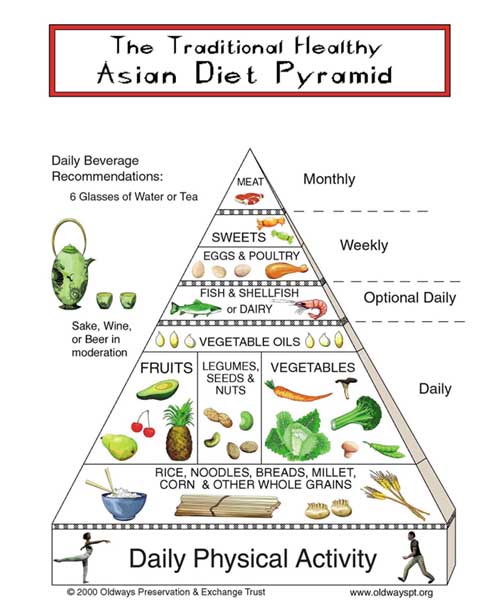Nutrition
Puerto Rican cuisine has some aspects reminiscent of its
historical connection with Spain, but it is quite distinct
from cuisines found in the U.S. Food is well seasoned but
not spicy.
| Cambodian
Culture |
American
Majority Culture |
 |
| Breakfast
usually consists of left over dinner or a porridge-like
rice broth called “conge”. |
Cereal with
milk, orange juice, fruit, toast, eggs and bacon, are
part of the traditional breakfast. |
| Cambodians
have two big meals: lunch and dinner. Meat and vegetables
are cut into small pieces before cooking and rice is the
main carbohydrate. |
Lunch is a
light meal (e.g., a sandwich). Dinner is the important
meal. Ordering take-out or eating out is common. |
Cambodians in the United States often continue to follow
the nutritional customs of their homeland. Much of the Cambodian
diet is based on foods available at home (Stockton, 2001).
Cambodians who frequent an Asian market will find bottled
sauces, canned fruits, 50-pound bags of rice, noodles, cookies,
candies, and teas on shelves. Cambodians spend much time preparing
foods that often include numerous spices and strong aromas
(Tith, 1990). This may explain why Cambodian students come
to school with the smell of food in their clothes.
The Cambodian diet is naturally nutritious, full of fish,
seafood, vegetables, and fruit. It is generally low in fat
and calories. “Junk food” is not the same in Cambodia:
coconut and strong smelling pickled fish are considered fattening
and distasteful (Stockton, 2001).

Source: Oldways Preservation and Exchange
Trust, 2000. Permission requested.
|




